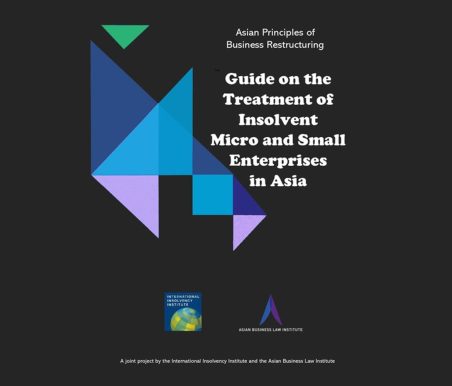by Grace Leong
“The Asian Business Law Institute (Abli) has published a review for lawyers and businesses on how foreign judgments in civil and commercial matters are recognised in various jurisdictions in Asia and the requirements for these judgments to be enforced.
This is part of an initiative to harmonise rules on enforcing foreign judgments in Asia, as the region moves towards a borderless trading environment.
It is the first time that such a study has been done to cover the laws of all Asean countries and the major Asian economies of China, India, Japan, South Korea and Australia.
Tackling barriers to cross-border trade is becoming significant in the light of rising integration through developments such as the Asean Economic Community, Asian Infrastructure Investment Bank and China’s Belt and Road Initiative.
Established in January 2016, Abli is a research institute aimed at ensuring that Asian business law keeps up with the accelerating pace of economic integration in the region.
“Asia consists of a mix of common law countries, civil law countries and hybrid systems. The diversity of rules is not just confusing for litigants, who would potentially have to navigate both substantial and subtle differences in the various laws, but the plaintiff may find that the judgment received after a hard-won litigation is not recognised or enforceable in a foreign country,” said Associate Professor Adeline Chong of the Singapore Management University’s School of Law, who led the project.
For instance, Indonesia and Thailand do not recognise and enforce foreign judgments.
In those countries, a litigant would have to sue afresh in the same cause of action despite a prior foreign judgment in his favour, although it is possible that the foreign judgment may still have effect as it may be introduced as evidence in local proceedings.
Some countries recognise and enforce a foreign judgment only if there is a treaty on that issue.
“While significant differences do exist, there is cause to believe that harmonisation of the recognition and enforcement of foreign judgment rules in Asia is no pipe dream,” Prof Chong said.
This study could set the stage for achieving the next big goal – whether there can be a “harmonisation of seemingly disparate systems for the recognition and enforcement of foreign judgments and, if so, how this is to be accomplished,” said Judge of Appeal Andrew Phang, the project’s adviser.”
Link to the article:
http://www.straitstimes.com/singapore/study-done-on-how-foreign-judgments-are-recognised-in-asia

![[Interview] Three Months after [Interview] Three Months after](https://abli.asia/wp-content/uploads/elementor/thumbs/Interview-Three-Months-after--r77ai2q4sjbfek8t4k352wupszvw4nz2fwgqdlz7hc.jpg)





